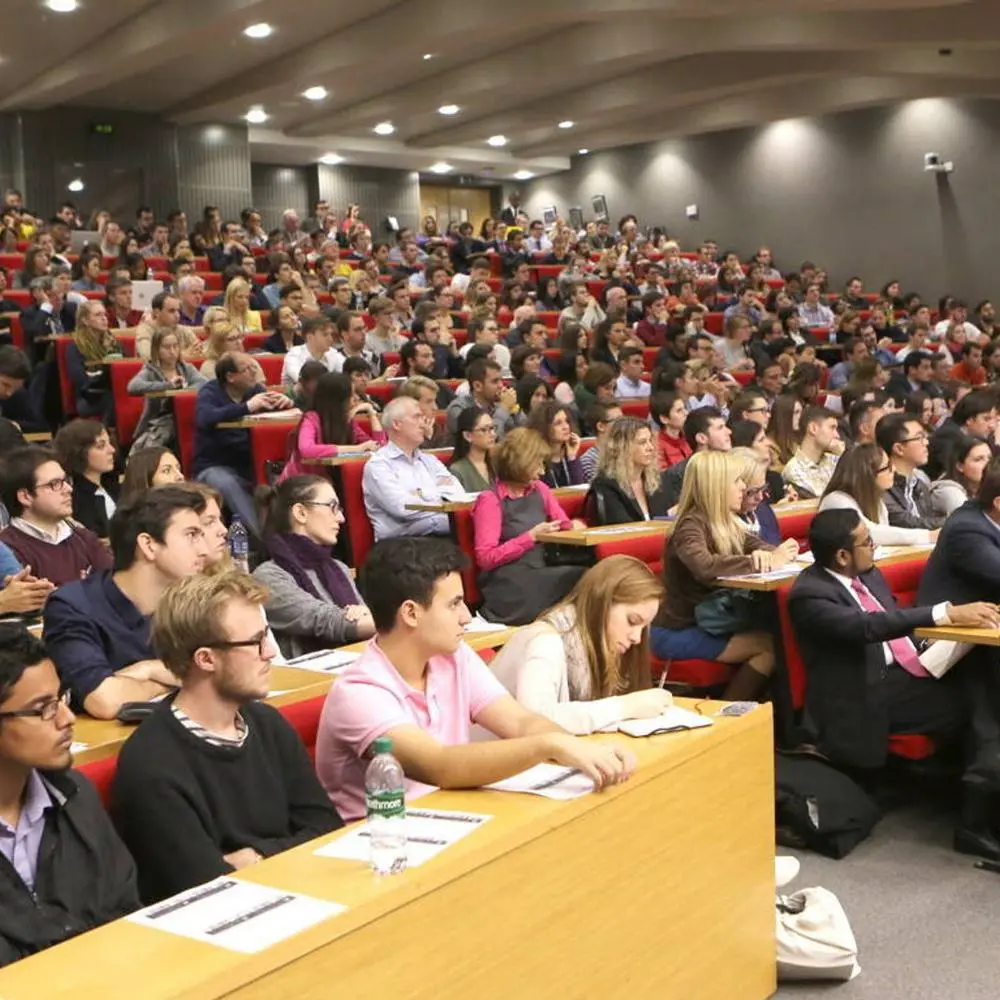Nationalism and war in 21st-century Europe
Europe has witnessed significant political and social turbulence over the past decade. The rise of anti-immigrant, nativist, and populist movements, the erosion of traditional political parties, widening socioeconomic disparities, and increasing polarisation have profoundly unsettled the European order. From the shock of the 2016 Brexit referendum to the seismic impact of Russia’s 2022 invasion of Ukraine, recent developments have challenged long-held assumptions.
In this lecture, Siniša Malešević critically examines the conventional wisdom that nationalism and war are relics of Europe’s past. Drawing on a longue durée sociological perspective, he will argue that these forces remain deeply embedded in modernity. Rather than anomalies, the resurgence of nationalism and organised violence should be understood as part of broader historical patterns shaping contemporary Europe.
The lecture will be followed by an interactive Q&A session and a networking reception, offering a valuable opportunity for scholars and students to exchange ideas and build connections.
This event is the Annual Lecture of the Annual Review of the JCMS, hosted by the LSE European Institute and UACES.
Meet our speaker and chair
Gianfranco Baldini from the University of Bologna will be delivering a short overview of the lecture, in his capacity as co-editor of the JCMS: Journal of Common Market Studies Annual Review.
Siniša Malešević is Full Professor of Comparative Historical Sociology at the University College Dublin. He was appointed UCD Chair of Sociology in September 2011. Previously he held research and teaching appointments at the Institute for International Relations (Zagreb), the Centre for the Study of Nationalism, CEU (Prague) - where he worked with late Ernest Gellner -, and at the University of Galway. He also held visiting professorships and fellowships at NIAS/NIOD Amsterdam, Uppsala University, Universite Libre de Bruxelles (Eric Remacle Chair in Conflict and Peace Studies), the London School of Economics, the Institute for Human Sciences, Vienna and the Australian Defence College, Canberra. Professor Malesevic is a Member of the Royal Irish Academy (elected in 2010), Academia Europaea (The Academy of Europe, elected in 2014) and an Associated Member of the Academy of Sciences and Arts of Bosnia and Herzegovina (elected in 2012). He is also Senior Fellow and Associated Researcher at CNAM, Paris. Prof Malesevic's main research interests include the study of war and violence, ethnicity, nation-states, and nationalism, empires, ideology, sociological theory and the comparative historical sociology.
Jasna Dragovic-Soso is Visiting Professor at LSEE Research on South East Europe, Hellenic Observatory Centre for Research on Contemporary Greece & Cyprus, LSE. She has written extensively about memory politics, transitional justice, nationalism, state disintegration and international intervention, with a focus on former Yugoslavia and the post-Yugoslav region. She is currently writing a book about truth commission initiatives and memory politics in the post-conflict Balkans and co-editing the Brill Handbook on Regions of Memory: Southeastern Europe. From 2022 to 2024, she was Director of Centre for the Study of the Balkans at Goldsmiths, University of London.
Maya Tudor is Professor of Politics and Public Policy at the Blavatnik School of Government and Fellow at St Hilda's College at the University of Oxford. Her research investigates the origins of effective and democratic states with a regional focus on South Asia. Before embarking on an academic career, Maya worked as a Special Assistant to Chief Economist Joseph Stiglitz at the World Bank, at UNICEF, in the United States Senate, and at the Bangladesh Rural Advancement Committee.
Vesna Popovski is LSE Fellow in Conflict and Post-Conflict Studies. Before joining LSE in 2012 as a Researcher at LSEE, European Institute she was Lecturer in the Politics of Ethnicity at UCL, SSEES. She also held posts as a Visiting Lecturer at the Centre for Russian and East European Studies, University of Birmingham, Lecturer in Sociology, Department of Sociology, University of Leicester and Visiting Lecturer at the Department of Sociology, University College Dublin. Her main research interests have been national minorities, nationalism and more recently conflict studies, globalisation, post-conflict reconstruction, post-conflict justice, reconciliation, institutional design in divided societies.
More about this event
The European Institute (@LSEEI) is a centre for research and graduate teaching on the processes of integration and fragmentation within Europe.
UACES (@UACES) is the global membership organisation for academics, students and practitioners interested in all aspects of Europe and the European Union.
JCMS (Journal of Common Market Studies) publishes innovative peer-reviewed research on Europe and comparative regional studies.
Podcast & Video
A podcast of this event is available to download from Nationalism and war in 21st-century Europe.
A video of this event is available to watch at Nationalism and war in 21st-century Europe.
Podcasts and videos of many LSE events can be found at the LSE Public Lectures and Events: podcasts and videos channel.
LSE holds a wide range of events, covering many of the most controversial issues of the day, and speakers at our events may express views that cause offence. The views expressed by speakers at LSE events do not reflect the position or views of The London School of Economics and Political Science.
From time to time there are changes to event details so we strongly recommend that if you plan to attend this event you check back on this listing on the day of the event.
Whilst we are hosting this listing, LSE Events does not take responsibility for the running and administration of this event. While we take responsible measures to ensure that accurate information is given here this event is ultimately the responsibility of the organisation presenting the event.
LSE holds a wide range of events, covering many of the most controversial issues of the day, and speakers at our events may express views that cause offence. The views expressed by speakers at LSE events do not reflect the position or views of the London School of Economics and Political Science.
